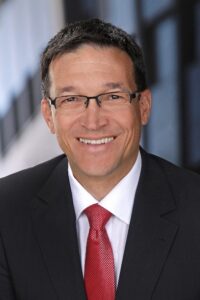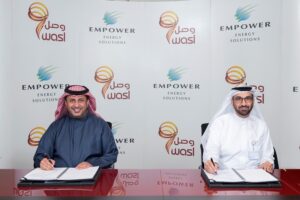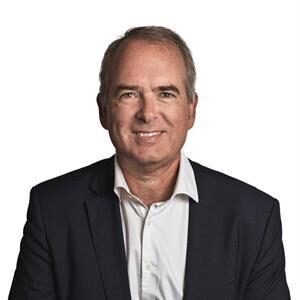GEA speaks of improving plant efficiency, reducing carbon emissions
DUESSELDORF, Germany, 12 February 2021: Potential energy savings of up to 30% and a significant reduction in CO2 emissions by as much as 90% or even 100% – that’s what its Sustainable Energy Solutions (SEnS), which integrates processes and utilities (refrigeration and heating) solutions, can help in developing optimisation strategies for customers in diverse industries, GEA said through a Press release. Numerous successfully completed SEnS projects from GEA show that these optimisations reduce the customer’s energy footprint and running costs, without compromising output or the bottom line, GEA added.

Kai Becker
Source: GEA
According to the United Nations, energy efficiency offers a potential 40% of the emission reductions required to help meet global climate goals, GEA pointed out. Due to a growing number of rules and regulations and its own climate targets, there is an absolute need for the industry to reduce its carbon footprint and become more energy-efficient, overall, it said. With cooling and heating traditionally accounting for anywhere between 50% and 90% of a plant’s entire energy consumption, it’s the ideal starting point for GEA’s SEnS initiative, it added.
GEA said its SEnS offering is a culmination of a broad processing portfolio and years of industry know-how, combined with extensive refrigeration expertise. “SEnS supports customers in the food processing, dairy and beverage industries, helping them achieve their climate goals by making them more sustainable,” said Kai Becker, CEO, Refrigeration Technology Division, GEA. As a global industrial technology provider, GEA said, it will continue to strengthen its SEnS offering in 2021. Using the SEnS approach, GEA said it will promote the increased adoption of sustainable solutions, which drive down energy consumption and reduce carbon emissions while helping customers from diverse industry sectors slash their operational costs.

Ulrich Walk
Source: GEA
Ulrich Walk, Chief Service Officer (CSO) – Refrigeration Technologies, said: “GEA has developed a structured holistic and proven approach that begins with analysing the customer’s precise energy requirements, then making process optimizations and including utilities in the equation. By connecting heat pump technology to manufacturing processes, the GEA experts ensure energy is moving circularly, rather than being wasted.”
According to GEA, each SEnS project includes a single point of contact, enabling customers to achieve genuine and proven reductions in energy consumption and their carbon footprint. The SEnS process, the company said, is backed up by a cross-functional engineering team, with experts from dairy, food or beverage processing, as required, as well as team members with refrigeration (heating & cooling) expertise in diverse processing industries. Each project, it added, considers the customer’s business parameters and ambitions, formulated as measurable KPIs, against which the installation must deliver.
Empower signs contract to supply 30,000 RT of district cooling to wasl1 development

Ahmad Bin Shafar with H.E. Hesham Al Qassim during the signing ceremony
DUBAI, UAE, 26 January 2021: Emirates Central Cooling Systems Corporation (Empower), announced that it has signed an agreement with Dubai-based Wasl Asset Management Group, one of the largest real estate development and management companies in Dubai, to supply its mixed-use development, wasl1, with 30,000 Refrigeration Tons of district cooling.
Currently being carried out in several phases, the project is located in proximity to Dubai’s arterial Sheikh Zayed Road and Al Jafiliya Metro Station, with views of Zabeel Park. wasl1 will eventually feature 13 residential towers, of which the first phase, Park Gate Residences – comprising four towers and consisting of 746 residential units – has been completed and handed over. wasl1 will also include a range of entertainment facilities, children’s play areas, fully equipped gymnasiums, a multi-purpose hall, and a number of retail stores, restaurants and cafes.
In his comments, H.E. Hesham Al Qassim, CEO, Wasl Asset Management Group, said: “We chose Empower based on its tremendous capabilities in providing district cooling services, and we believe that its efficacy will contribute to strengthening the distinctive wasl1 project. The company’s advanced technologies support our mandate to contribute to the sustainable development of the emirate, while also ensuring the provision of the best cooling services to tenants, effectively enhancing the unique characteristics of wasl1 as a luxury residential project.”
According to Empower, providing a project of such magnitude with green district cooling services has prompted the corporation to direct AED 210 million in investments to finance the construction of seven energy transmission and storage stations (ETS), and to connect the project to the new district cooling plant that is currently underway in the Zabeel area. This, Empower said, would require the building of a subway under Sheikh Zayed Road, in addition to the expansion of the district cooling network.
Empower also said that the wasl1 project will be provided with district cooling services in a number of phases. By mid-2021, the first phase is expected to be completed, which would enable it to provide 3,351 RT of cooling and up to the total capacity of 30,000 RT – equivalent to half of the production of the new Zabeel plant, Empower said. Subsequently, the district cooling plant in the Dubai Financial Centre, currently under operation, will be connected to the new Zabeel plant, with a total load of 112,000 RT, Empower added. This comes in the framework of a proactive plan it has established to meet the needs of the existing as well as of the upcoming mega development projects launched in this vital area of Dubai, Empower further added.
Ahmad Bin Shafar, CEO, Empower, said: “We are working hard to serve the pioneering real estate projects, and we aim to provide all residential, commercial and entertainment facilities and sectors in the emirate of Dubai with district cooling services of sustainable international standards. This emphasizes the pioneering role Dubai plays with regards to reducing carbon emissions, which comes in line with the directives of His Highness Sheikh Mohammed bin Rashid Al Maktoum, Vice President and Prime Minister of the UAE and Ruler of Dubai, may God protect him.”
Bin Shafar pointed out that adding the wasl1 project to Empower’s portfolio reflects the confidence real estate developers and dealers have in the reliable services it provides. He added that the association with the project also enhances its role in providing more quality cooling services with 50% less energy consumption, compared to the currently used traditional refrigeration services.
Empower reveals AED 901 million net profit in 2020
According to Empower, performance in a nutshell
- Total cooling capacity crossed 1,640,000 RT, maintaining the position of the largest district cooling provider in the world
- Over 140,000 customers
- Total energy saving AED 3.4 billion in 2020
- A total of 350.474 kilometres of district cooling networks
DUBAI, UAE, 20 January 2020: Emirates Central Cooling Systems Corporation (Empower) reported a net profit of AED 901 million, with a total revenue of AED 2.26 billion in 2020. Making the announcement through a Press release, Empower said its revenues grew by three per cent, with a net profit increase of 3.4% year-over-year (YoY). Empower added that the performance has been commendable, given the difficult economic conditions resulting from the global pandemic.
Commenting on Empower’s financial results at the annual press conference, Ahmad Bin Shafar, CEO, Empower, said: “2020 has been another successful year for Empower, with growth in its financial as well as operational performance, which is clearly evident from increase in revenues and net profit, additions in the number of district cooling plants, expansion of district cooling pipeline network, increase in customer base and the number of buildings connected with our district cooling services.”
According to Empower, the number of buildings it provides with its district cooling services exceeded 1,252, and the customer base has reached more than 140,000. The total cooling capacity has reached 1,640,000 Refrigeration Tons (RT) during 2020 that covered various projects, such as Deira Waterfront, Blue Waters, Jumeirah Group, Jumeirah Beach Residence, Dubai International Financial Centre, Business Bay, Dubai Healthcare City, Jumeirah Lake Towers, Palm Jumeirah, Discovery Gardens, Ibn Battuta Mall, Dubai Design District and International Media Production Zone, amongst others, the utility said.
“Empower has also saved a total of 1,312 MW of electricity worth AED 3.4 billion, as of the end of 2020,” Bin Shafar said.
On the sidelines of the press conference, Bin Shafar also said: “We are proud of our achievements in terms of increased number of district cooling plants that has reached 84 plants across Dubai, including the world’s first unmanned district cooling plant in Jumeirah Village Circle project, along with having the largest district cooling network.
“Empower is committed towards efficient utilization of energy resources and supporting its customers and real estate developers, by providing high-quality and eco-friendly district cooling services.”
Bin Shafar also stated that Empower had reduced its fuel surcharge rates by approximately 25%, effective December 1, 2020, in line with the initiative of the Dubai’s Supreme Council of Energy.
He added: “We will continue our endeavors in 2021 to increase the number of district cooling plants and expand our district cooling network across Dubai.”
‘The UAE leadership has a view of the future – and it is not just tomorrow’

Climate Ambassador Tomas Anker Christensen
Congratulations on your appointment as Denmark’s Climate Ambassador. Could you speak on the potential areas of cooperation between the UAE and Denmark?
I think it’s remarkable the far-sighted leadership the UAE has taken as an oil- and gas-producing country. The leaders have a view of the future – and the future that is not just tomorrow, not just five or 10 years, but they are thinking ahead to 20 or 50 years from now.
We are talking about the major transformation of energy systems. The largest solar farms in the world are in the UAE, and a lot of investment is being done in this area. The country is taking energy efficiency in buildings seriously and addressing the challenge of having had, years ago, the highest carbon footprint per inhabitant.
In that sense, cooperation between the UAE and Denmark on energy and other topics related to food and maritime issues makes imminent sense. We are the country in the EU with the largest oil -production. We have oil and gas in the North Sea. But we are slowly ending our exploration of that oil and gas, and in December 2020, the Danish Parliament decided to end fossil extraction in the North Sea by 2050 with a plan for the just transition of impacted workers and a conversion of the oil and gas fields to Carbon Capture Utilization and Storage (CCUS)].
There is also a huge market for renewable energy, globally, as this transformation [can be seen] worldwide. In Denmark, we are building better and taller wind farms and offshore wind farms, including over the next two years in two new energy islands. As a result, there has been global interest surrounding Danish windfarm operators and wind constructors, many of whom are now in demand in a number of countries such as the US, Korea and Australia.
Could you speak more about the competitive advantage that countries such as the UAE can have from specialising in sustainable cooling solutions, both in terms of developing the expertise within the country and in terms of pioneering solutions? Do you see this to be a growing market?
The world is undergoing an energy transformation, and the UAE is also very well positioned to be part of it and, in some instances, to lead this transformation. As such, a partnership with a country like Denmark makes great sense.
When it comes to the development of cities, it’s clear that if you look at trends as a whole, [the population] is moving from the countryside to cities at an increased rate. I think the latest figures from UN Habitat and other global organisations is that almost half of the human population lives in cities. We have been going from 30-40% of the population to half, and the trajectory is pointing towards a world where most of the people are in cities.
There have been large movements in the Global South. In China, you have more than 70 cities with more than one million inhabitants, and many are newly constructed with poor quality of buildings that need to be retrofitted and rebuilt. In India, you have a growing middle-class population, and this has led to growth of new buildings in new cities or more modern buildings in new parts of the city. The same trend can be seen in the Gulf region. For a very long time, Dubai was home to most of the cranes in the world. In Africa, large cities that are already big, continue to grow. In Indonesia, we see a population in the process of moving Jakarta to a new island, because it is sinking.
Basically, in many places, the built-environment is not a done deal. We are at the beginning, not at the end. It’s only in older industrial countries in the West that the city structure is permanent. I would think the opportunities for both new buildings and retrofitting are very large, especially in warmer climates, where expertise is needed in challenging environments.
For us, in Denmark, it’s more about reverse engineering our experience with energy efficiency and insulation, and usinge and applying them in the UAE. Also, there would be solutions we need to develop from scratch, based on the circumstances and the physical environment.
It’s clear that cooling also has some attributes different from heating. [In Denmark], some companies are experimenting with district cooling, but most are district heating, with a lot of combined power and heat plants. Also, some of them are doing this with garbage waste disposal and heat and power. With the more recent climate law, because of the move towards circular economy, we are now looking at recycling and reusing our waste rather than incinerating it.
What can further drive the development of expertise and solutions in the sustainability arena in a country?
A combination of energy pricing and embedding efficiency in building codes and regulation by central and local governments are key here. The building owner and operator might not be interested in building more efficiently because of the perceived cost, and they will try to defer the cost onto the tenants. That means rent goes up, bills go up, and they are not too happy either. That’s always a question for the less well off, that’s also the question of the fair and equitable distribution of the cost and benefit, [[when it comes to implementing sustainable solutions.].
In Denmark, people have been investing in energy efficiency because of energy cost and due to strict regulation since the 1970’s. Because of the cost of energy, there are huge paybacks at a shorter time.
In what ways can the public sector in the GCC region incentivise sustainability initiatives in the built-environment, both in terms of introducing retrofit targets and also ensuring new buildings adhere to higher energy- efficiency goals?
For one, I would say that educating the general public is extremely important, in terms of the cost, economy, sustainability and potential social benefits.
The very practical education of engineers and economists, integrating energy efficiency into curricula in the built-environment, so that you have your own skilled engineers and technicians ¨to operate systems, do the buildings and learn from it. It is a mentality and way of thinking. We have done it for the last 50 or more years; we didn’t do it before that. It took us a long time and heavy regulation, strong incentives and a lot of private discussion among government and private sector and institutions of higher education to get that sector to operate in an efficient and integrated way. I would encourage public policy makers to think through different dimensions of how to establish a cluster of knowledge and expertise. The young students of today will be the leaders of tomorrow, and they have to make it work 10-15 years down the road.


